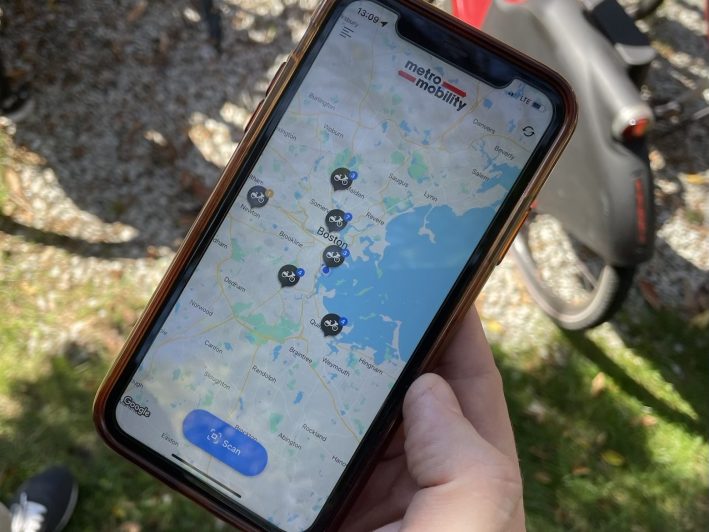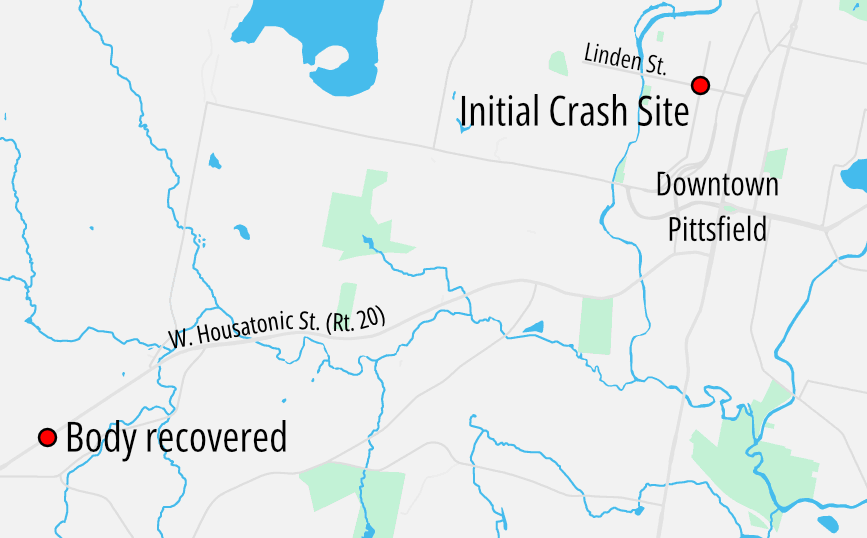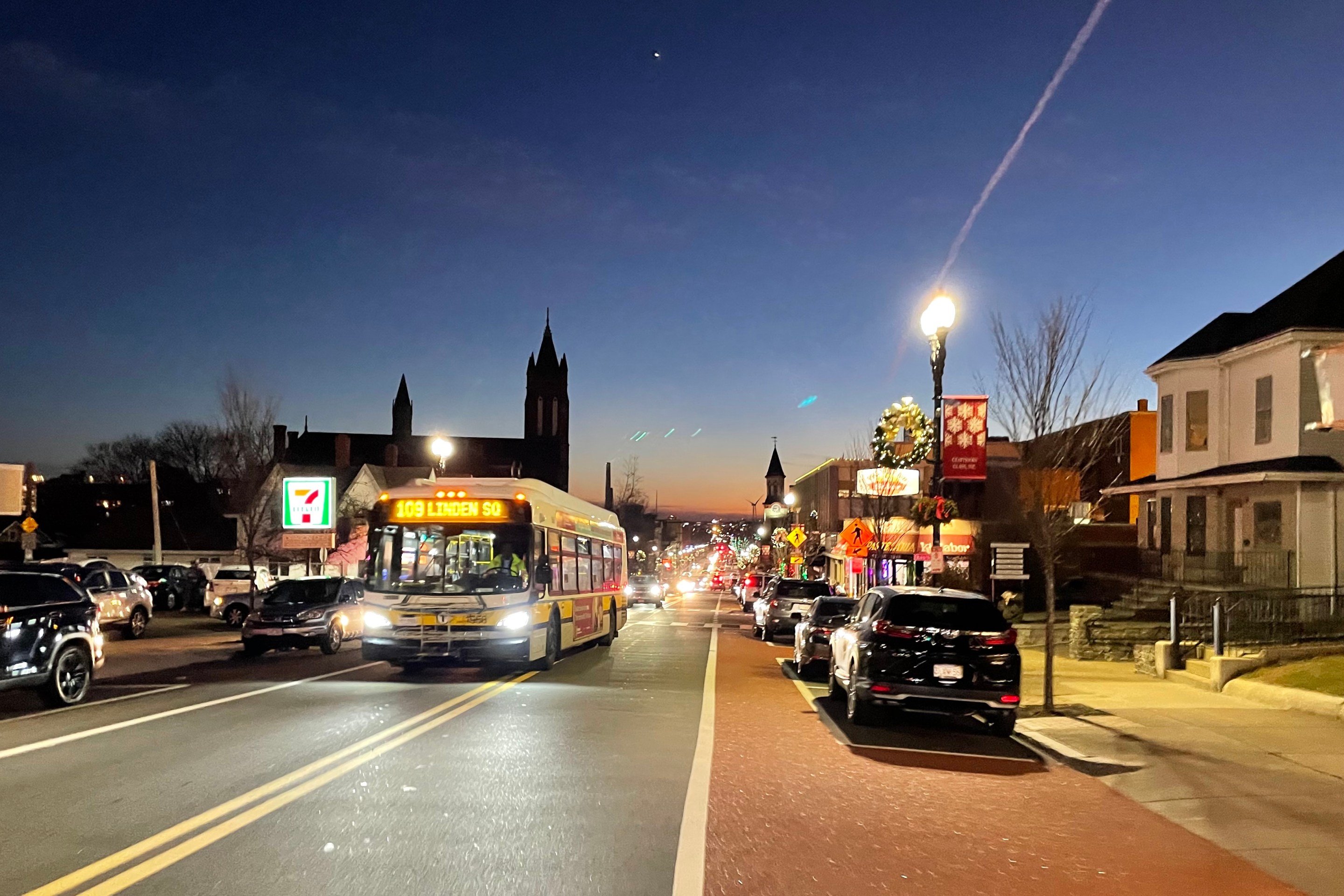Metro Mobility, a micromobility startup based in Cambridge, has launched a new low-cost e-bike rental system for affordable housing complexes across eastern Massachusetts.
The company is an offshoot of the Park & Pedal program, a network of suburban park-and-ride lots near bike trails where commuters can drive partway into the city, park their cars, then bike the rest of the way.
"With Park and Pedal, the idea was to bring your own bike, but there was always demand for bike rentals," Ryan Walas, Metro Mobility's Chief Marketing Officer, told StreetsblogMASS. "We looked into adding BlueBikes docks, but the stations are very expensive."
Instead, Park and Pedal's founders spun out a new company, Metro Mobility, to design and deploy a lower-cost option.
The company came up with a basic station design they call ChargeLock. It combines a basic bike rack with heavy-duty cables that both lock and recharge bikes and scooters parked at the rack.
In 2023, the company won grant funding from the Massachusetts Clean Energy Center to expand the system to several affordable housing communities across eastern Massachusetts.
Lower costs for longer rentals
Metro Mobility is a privately-owned, for-profit company, but it has some similarities to the publicly-owned Bluebikes bikesharing system.
Customers use an app to unlock the system's shared bikes, and for short trips, there's a $1 unlock fee followed by a 15-cent-per-minute charge.

However, unlike Bluebikes, the Metro Mobility system is really geared towards longer trips and day-long rentals – it's more like a fleet of bikes that you share with your neighbors.
Users are expected to return bikes to the same place where they checked them out, but the bikes include an integrated heavy-duty cable lock which lets users park the bikes without ending the rental while they're at work or running errands.
Full-price rentals are just $1 for the day for income-qualified individuals (with the same income guidelines as the T's new low-income CharlieCard), or $12 a day for everyone else.
Walas told StreetsblogMASS that several factors help Metro Mobility keep their prices low. Because bikes always get returned to the same station, and because the locking cables also re-charge the bikes, there's no need to have employees move bikes between stations or swap batteries.
The equipment is also considerably simpler: the racks are very basic, although they do need an electrical hookup. The ChargeLock racks have been designed to integrate with a range of electric bike fleets, and many of the bikes Metro Mobility has deployed around Massachusetts are refurbished vehicles from Uber's short-lived JUMP bikesharing system.
Riders use bikes for grocery shopping, delivery gig work
After about a year of operation, the system's 110 bikes have collectively logged about 32,706 miles.
As part of their grant agreement with the Clean Energy Center, Metro Mobility is collecting data about how its subscribers have been using their bikes.
Each bike has an integrated GPS unit, and the app also prompts users with a few survey questions about their trips each time they check out a bike.
According to the in-app survey, roughly half of Metro Mobility rentals are used primarily for commuting trips, and about 30 percent of rentals are used for trips that otherwise would have been taken with a motor vehicle.
Walas told StreetsblogMASS that some of the most common destinations are supermarkets and MBTA stations.
In addition to its stations at apartment complexes, Metro Mobility has also installed a station for health care workers at Massachusetts General Hospital in Boston's West End.
Walas told StreetsblogMASS that a few of their subscribers have also been renting bikes to run deliveries for companies like Doordash and Postmates. That's a use case where the company sees opportunities to expand, and potentially help cut down on the number of double-parked delivery vehicles that clog busy streets.






